Yahya Sinwar was an uncompromising extremist, a violent ideologue who once told an Israeli interrogator that even 100,000 dead Palestinian civilians would not be too many if it meant meeting his long-standing political goal of eliminating the state of Israel.
Born in central Gaza in 1962, he rapidly rose through Hamas’ ranks. His actions, such as the violent slayings of Palestinians suspected of assisting Israel, solidified his image as a merciless enforcer willing to indulge in tremendous violence against both Palestinians and Israelis and earned him the moniker the Butcher of Khan Younis. In 1989, he was arrested by Israeli authorities and eventually sentenced to life in prison for a string of violent offenses. Sadly—for both Israelis and Palestinians who have suffered as a consequence of his leadership—Sinwar was released from prison in 2011 as part of a prisoner exchange in which Israel gave up 1,027 convicted criminals for a single kidnapped Israeli soldier, Gilad Shalit, who had been captured in a cross-border raid in 2006.
As leader of Hamas in Gaza, Sinwar acted on what he had told his Israeli interrogators during his imprisonment. The October 7 attacks—responsible for the deaths of over 1,200 Israelis and the subsequent war in which at least 41,000 Palestinians have perished—were the culmination of Sinwar’s violent fantasies of death and destruction. Of course, Sinwar was far from the only leader in Hamas who wished violence upon Palestinian civilians. Hamas’ former leader, Ismail Haniyeh, said last November that “we need the blood of the women, children, and elderly … to awaken within us the revolutionary spirit.”
Contra Sinwar and Hamas, it is possible for Palestinians to work with Israel to end the conflict, to live in peace, tolerance, and coexistence. And without Sinwar, that dream is now more possible.
How Gazans reacted to Sinwar’s death.
After Sinwar’s death, videos of ordinary Gazans who share this dream went viral, with some even speaking Hebrew, trying to directly reach out to Israelis to say that we Palestinians want to live, we want to have a normal life, and we don’t want to be pawns in Hamas’ religious crusade against Jewish people.
There is now, in fact, a substantial basis of support for this position, as well as massive disillusionment with Hamas rule in Gaza. In the most recent poll by Arab World for Research & Development, conducted in August and published in September, just 6 percent of Gazans expressed support for Hamas, while 47 percent expressed support for Hamas’ main political rival, Fatah. Furthermore, according to the same poll, 62 percent of Gazans now support a two-state solution, 19 percent support the idea of a one-state solution with equal rights for all, while only 10 percent support a single Palestinian state “from the river to the sea.”
This, obviously, is quite a difference from last year, when polls seemed to show widespread support for Hamas and for the idea of a single Palestinian state. No doubt, the data shows a real shift. Of course, all polls taken during war should be taken with a grain of salt because of the many logistical challenges of polling a population that has been uprooted and scattered by war. Yet today, it seems as though polls have dramatically overestimated the level of Palestinian support for Hamas. New findings by the Israel Defense Forces show that Hamas was fraudulently manipulating political polling in Gaza:
According to The Times of Israel:
The IDF has recovered Hamas documents from the Gaza Strip that it says prove the terror group has been secretly falsifying the results of polls conducted by the Palestinian Center for Policy and Survey Research (PCPSR).
Still, the IDF says that the documents do not prove that PCPSR was cooperating with Hamas, but rather that the terror group was conducting clandestine actions to fraudulently influence the results of the polls.
…
According to the IDF, the documents it recovered in Gaza “prove an extensive effort by the terror organization to falsify the results of [the PCPSR] polls, to create a false representation of the Gazan public’s support for the terror organization, especially after the massacre on October 7.”
In other words, there was a lot rotten in Gaza under Hamas. Not only was Hamas intimidating Palestinians into supporting its ideology and strategy, but the group was directly attempting to manipulate polling to make it look like it had popular support.
Although there has been an undercurrent of opposition to Hamas—such as the We Want To Live movement spawned in 2019 that protested against the group on many occasions—many downplay just how hard it would have been to oppose the group on the ground. Hamas was the government of Gaza, it was well-funded by Qatar and the despotic regime in Iran, and it could use its overwhelming force to suppress opposition. Many protesters, such as Hamza Howidy, were jailed by Hamas simply for protesting for their civil and human rights.
But one thing is becoming clear: Palestinian moderates have been set free to forge a different path.
For me personally, as a son of a Palestinian from the West Bank who has watched the failures of the peace process over my entire lifetime, I felt compelled to speak about the conflict simply because I could not watch this disaster continuing for the Palestinian and Jewish people, both of whom I care about dearly.
For my entire life, I have watched groups like Hamas and Palestinian Islamic Jihad betray the Palestinian people by perpetuating the conflict with Israel. I did not want to watch this conflict go on for another generation, with my people suffering under a military occupation and blockade, and Israelis suffering from rocket attacks, suicide bombings, and kidnappings.
I have been trying to advocate for a resolution to the conflict for nearly a year now, promoting peace and coexistence and a new vision for a shared future for Israelis and Palestinians. I have also seen the rise of many other pro-peace voices such as Ahmed Fouad Alkhatib writing about the possibility of a peaceful future from the Palestinian side.
Of course, Hamas has not completely fallen yet. Cells of Hamas control remain in Gaza. There has been no mass surrender of Hamas fighters yet, and no full-scale release of the Israeli hostages taken on October 7. And Hamas’ supporters abroad remain in good spirits—though this seems more like delusion from proponents who do not have to deal with the underlying reality on the battlefield. Rather than accepting that Hamas is losing the war and losing control, pro-Hamas ideologues are instead lionizing Yahya Sinwar and reimagining him as some kind of superhero against Israel, a brave man who fought with his own hands against his enemy and died on the battlefield.
Let’s be clear about this, though: Hamas was in enough disarray for Israel to kill its leader, driven from his tunnels and separated from the Israeli hostages he reputedly surrounded himself with. If this is not the end for Hamas, at the very least it is the beginning of the end.
We should try to seize this moment with both hands.
A dream of peace.
Hamas’ reputation was built first and foremost upon strength. It consolidated its position by forcing concessions out of Israel, such as the 2005 Gaza withdrawal in which Israel uprooted their settlements in Gaza and the Gilad Shalit prisoner swap. Hamas used these concessions as proof to their supporters—such as the Iranian regime and Qatar—that it was a serious outfit deserving of support, and that it would ultimately be able to conquer Israel and end Zionist sovereignty.
The killing of Sinwar and Hamas’ impending defeat on the battlefield are huge blows against these ambitions. They reveal more than anything else that Hamas’ ideology and strategy were delusional.
Countries that want to see a better outcome for Israel, the Palestinians, and the region should be proactive in developing and building alternatives to Hamas. Palestinian political parties and political movements that reject Hamas’ ideology and instead wish for coexistence and peaceful self-determination alongside Israel need to receive substantial support, legitimization, and victories. And Palestinian moderates need to be the ones in a position of strength, able to capitalize on the disaffection with Hamas and to marginalize those professing the attendant narratives of jihadism, antisemitism, and the demonization of Israel.
Hamas should play no role whatever in the future governance of the Palestinian territories. They should be dissolved as a political force altogether, and I expect that the Israelis will take care of that. Israel simply will not allow Hamas to have another opportunity to repeat the massacre of October 7.
But beyond this, the international community needs to enshrine a new set of narratives—a dream of a bright future, technology, infrastructure, and growth. Gaza and Palestine exist in an amazing strategic location for trade, development, and prosperity. Our neighbor—Israel—has an amazing high-technology economy.
If international stakeholders—including the U.S., the U.K., France, Germany, Saudi Arabia, the United Arab Emirates, Jordan, and Egypt—do not step up to help moderate Palestinians assert control, then Iran, Qatar, and other nefarious regimes and groups like Syria, Russia, Hezbollah, and the Houthis will step into the power vacuum and try to reimpose their vision of Palestinian jihad until the destruction of Israel.
Support for Palestinian moderates should come in the form of political reform and modernization of the Palestinian Authority and intensive rebuilding work to help Gazans recover from the war. The majority of Gazans right now are living in tents, shelters, and damaged buildings, and that is not sustainable.
The most plausible long-run goal should be a self-sustaining Palestinian state in Gaza and the West Bank, able to offer homes, lives, dignity, and a future to Palestinians. Trying to merge Palestine and Israel after the massacre of October 7 into a one-state solution is not realistic. Living on international aid as permanent refugees under UNRWA is not a sustainable or dignified paradigm. Living under permanent military occupation is not plausible either.
Yes, there have been many missed opportunities in the past. The ideology of Hamas led us to a terrible place. We have to accept, above all else, that Israel has a right to exist, and we are not going to dislodge it by force. Otherwise, we risk ending up in the same mess again, dragged into a horrifying conflict where more innocent people will die.
This cycle cannot go on forever. The hard work of breaking the cycle starts now.
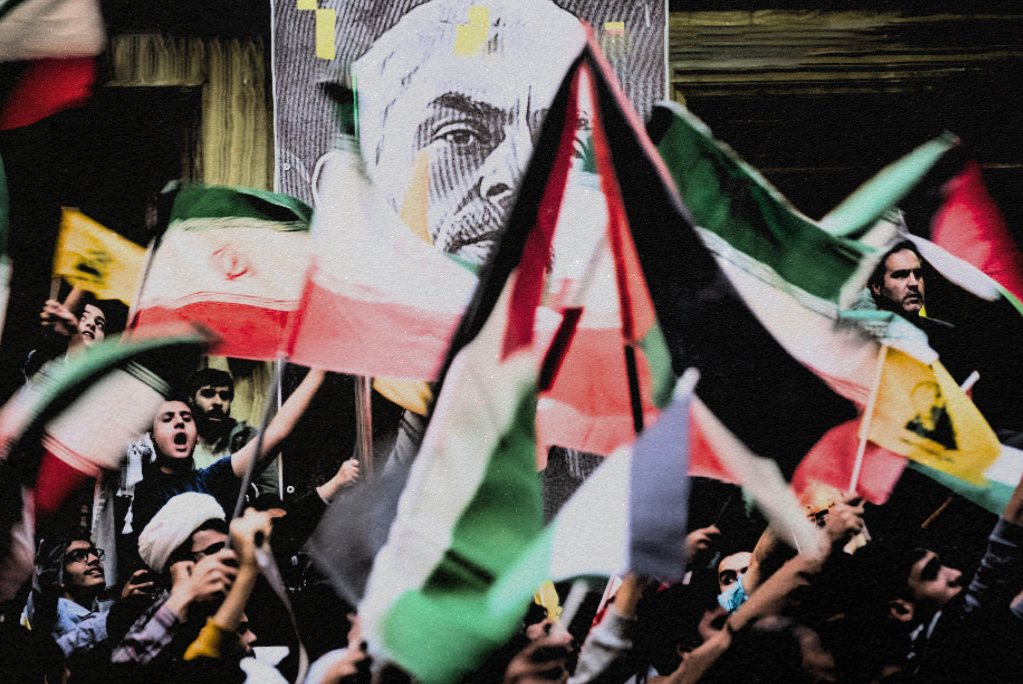
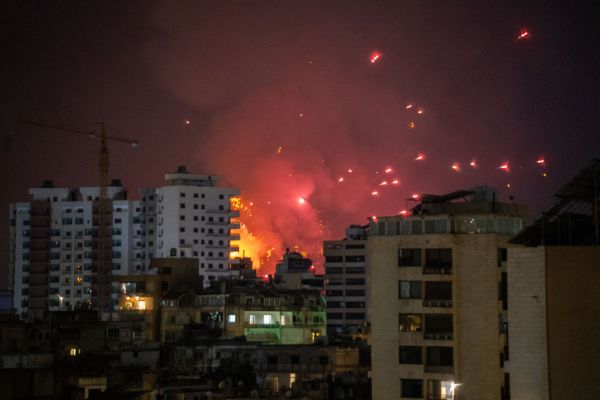
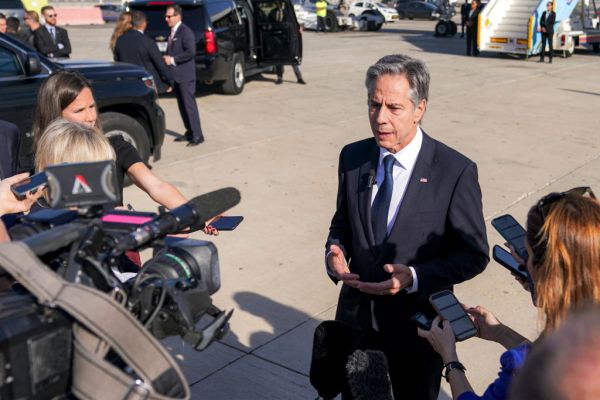
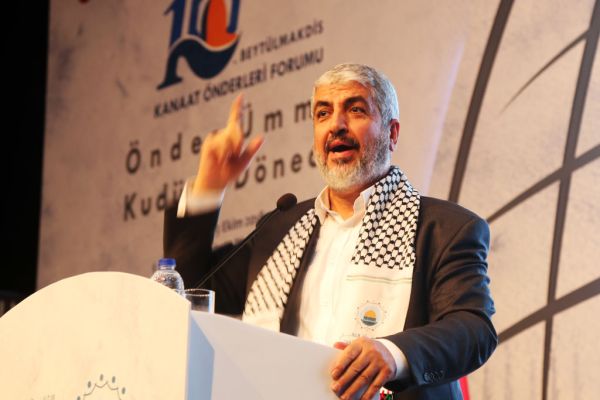


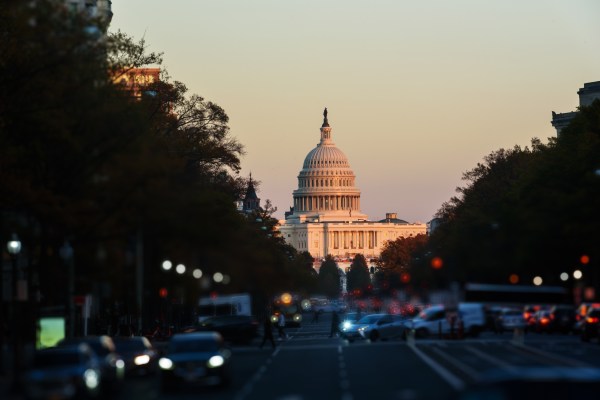
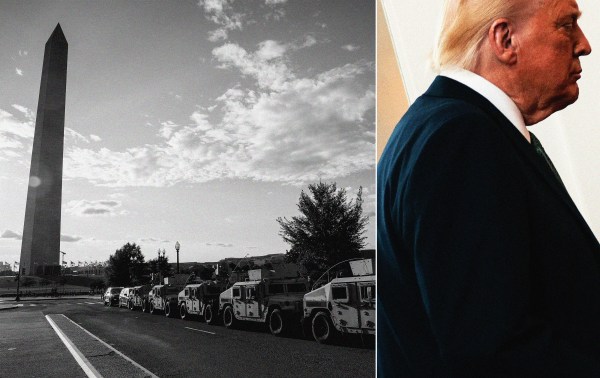

Please note that we at The Dispatch hold ourselves, our work, and our commenters to a higher standard than other places on the internet. We welcome comments that foster genuine debate or discussion—including comments critical of us or our work—but responses that include ad hominem attacks on fellow Dispatch members or are intended to stoke fear and anger may be moderated.
With your membership, you only have the ability to comment on The Morning Dispatch articles. Consider upgrading to join the conversation everywhere.